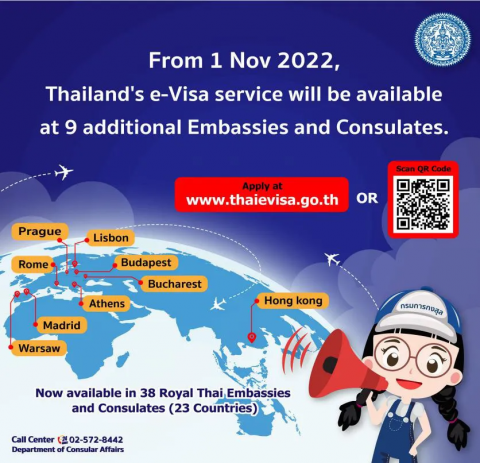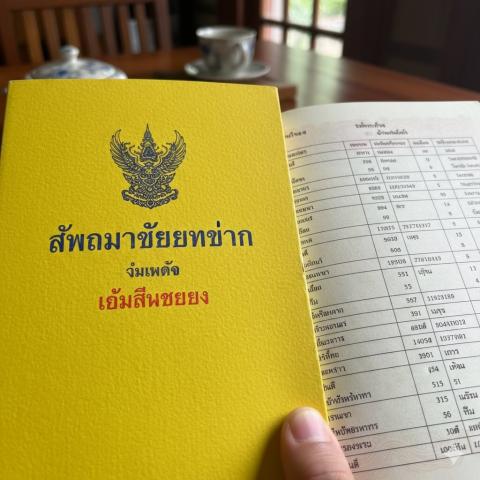Thai Education Visa (Non-Immigrant ED)
A Thai Education Visa, officially known as a Non-Immigrant Visa Category “ED”, is for foreign nationals who intend to study in Thailand. This visa allows you to stay in the Kingdom for the duration of your course, whether at a university, a language school, or another educational institution recognized by the Thai Ministry of Education.
Who Can Apply for a Thai Education Visa?
Foreigners who wish to study or do an internship in Thailand must apply for a Non-Immigrant Visa Category “ED”. This includes:
- Students enrolled in a Thai university or college.
- Individuals taking a Thai or English language course.
- Students attending an international school.
- Those participating in a workshop, training, or seminar organized by an international organization.
- Individuals undertaking a curricular internship as part of their educational program.
To be eligible, you must be enrolled in a full-time course at an accredited institution.
How to Apply for a Thai Education Visa
The process for obtaining a Thai Education Visa can be started either from your home country or while you are already in Thailand on another type of visa (e.g., a tourist visa).
Applying from Abroad
You can apply for a Non-Immigrant “ED” visa at a Royal Thai Embassy or Consulate in your home country. This visa is typically valid for 90 days upon initial entry into Thailand. The application fee will vary depending on the embassy or consulate where you file the application.
Applying from within Thailand
If you are already in Thailand on a tourist visa or another type of non-immigrant visa, it may be possible to convert your visa to a Non-Immigrant “ED” visa. This process is done at the Thai Immigration Bureau. It is important to begin this process with plenty of time remaining on your current visa. For more information on other visa types, see our page on the Non-Immigrant 'O' Visa.
Required Documents
The following documents are generally required for a Thai Education Visa application:
- A passport with a validity of at least six months.
- A completed and signed visa application form.
- A recent passport-sized photograph.
- A letter of admission or acceptance from your school in Thailand.
- An approval letter from the Ministry of Education (for private institutions).
- Proof of sufficient financial means to cover your tuition and living expenses.
- For some nationalities, a police clearance certificate may be required.
Visa Validity and Extension
The initial Non-Immigrant ED visa is valid for 90 days. Before the visa expires, you will need to apply for an extension of stay at the local immigration office. The extension is typically granted for one year at a time, depending on the length of your course. You will also be required to report your address to the Immigration Bureau every 90 days.
Studying in Thailand and Your Career
An education visa can be a stepping stone to a career in Thailand. While you cannot work on an education visa, gaining local knowledge and language skills can be a significant advantage. If you plan to work in Thailand after your studies, you will need to apply for a Business Visa (Non-B) and a Work Permit.
How We Can Help
At PS Law & Business, we can assist you with every step of the Education Visa application process. Our services include:
- Advising on the correct visa type for your needs.
- Assisting with the preparation and submission of your application.
- Liaising with the relevant Thai authorities on your behalf.
- Helping with visa conversions and extensions.
Contact us today for a consultation and let us help you with your journey to study in Thailand.
Frequently Asked Questions (FAQ)
Can I work in Thailand with a student visa?
No, you are not permitted to work in Thailand while on a student visa. To work legally, you must obtain a business visa and a work permit.
How much money do I need to show for a student visa?
You generally need to show proof of 20,000 THB if you are traveling alone, or 40,000 THB if you are traveling with family. However, this amount can vary, so it is best to check with the specific embassy or consulate where you are applying.
What happens if my course is longer than one year?
You will need to apply for an extension of your visa before it expires. The extension is typically granted for one year at a time, for the duration of your course.
Can I change my tourist visa to a student visa in Thailand?
In many cases, yes. You can apply to convert your tourist visa to a Non-Immigrant ED visa at the Thai Immigration Bureau. However, if you entered on a Visa on Arrival or under the visa exemption scheme, you will likely have to leave Thailand to apply for a student visa.




